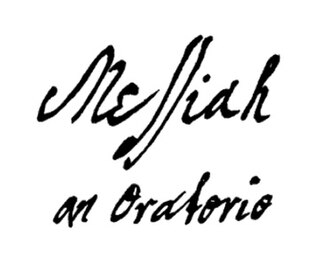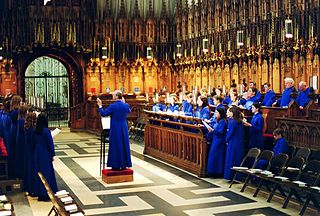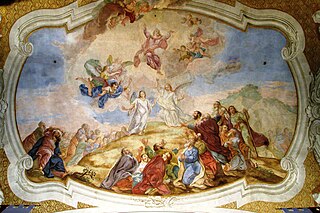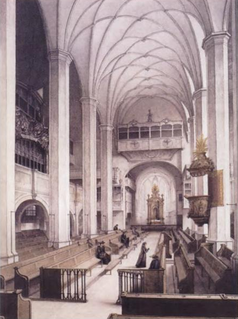The Central Maryland Chorale, formerly known as the Laurel Oratorio Society, is a classical music choral group based in Laurel, Maryland. The Laurel Oratorio Society was founded in 1969, and officially incorporated in 1973. The following year Virgil Thomson, a renowned conductor and composer, came to the Society to see a retrospective of his work.

Laurel is a city in northern Prince George's County, Maryland, in the United States, located almost midway between Washington, D.C., and Baltimore on the banks of the Patuxent River. Founded as a mill town in the early 19th century, the arrival of the Baltimore & Ohio Railroad in 1835 expanded local industry and later enabled the city to become an early commuter town for Washington and Baltimore workers. Largely residential today, the city maintains a historic district centered on its Main Street, highlighting its industrial past.

Virgil Thomson was an American composer and critic. He was instrumental in the development of the "American Sound" in classical music. He has been described as a modernist, a neoromantic, a neoclassicist, and a composer of "an Olympian blend of humanity and detachment" whose "expressive voice was always carefully muted" until his late opera Lord Byron which, in contrast to all his previous work, exhibited an emotional content that rises to "moments of real passion".
The Central Maryland Chorale performs oratorios, musical excerpts, and lighter choral works approximately three times a year, in addition to its annual Christmas season sing-along of Handel's Messiah .
An oratorio is a large musical composition for orchestra, choir, and soloists. Like most operas, an oratorio includes the use of a choir, soloists, an instrumental ensemble, various distinguishable characters, and arias. However, opera is musical theatre, while oratorio is strictly a concert piece – though oratorios are sometimes staged as operas, and operas are sometimes presented in concert form. In an oratorio the choir often plays a central role, and there is generally little or no interaction between the characters, and no props or elaborate costumes. A particularly important difference is in the typical subject matter of the text. Opera tends to deal with history and mythology, including age-old devices of romance, deception, and murder, whereas the plot of an oratorio often deals with sacred topics, making it appropriate for performance in the church. Protestant composers took their stories from the Bible, while Catholic composers looked to the lives of saints, as well as to Biblical topics. Oratorios became extremely popular in early 17th-century Italy partly because of the success of opera and the Catholic Church's prohibition of spectacles during Lent. Oratorios became the main choice of music during that period for opera audiences.

Messiah is an English-language oratorio composed in 1741 by George Frideric Handel, with a scriptural text compiled by Charles Jennens from the King James Bible, and from the Coverdale Psalter, the version of the Psalms included with the Book of Common Prayer. It was first performed in Dublin on 13 April 1742 and received its London premiere nearly a year later. After an initially modest public reception, the oratorio gained in popularity, eventually becoming one of the best-known and most frequently performed choral works in Western music.
The chorale supports young artists each spring by providing a vocal scholarship competition. The competition is open to high school seniors between the ages of 16–19.
The Central Maryland Chorale conductor and artistic director is Monica Otal and is accompanied by Dr. Theodore Guerrant.







